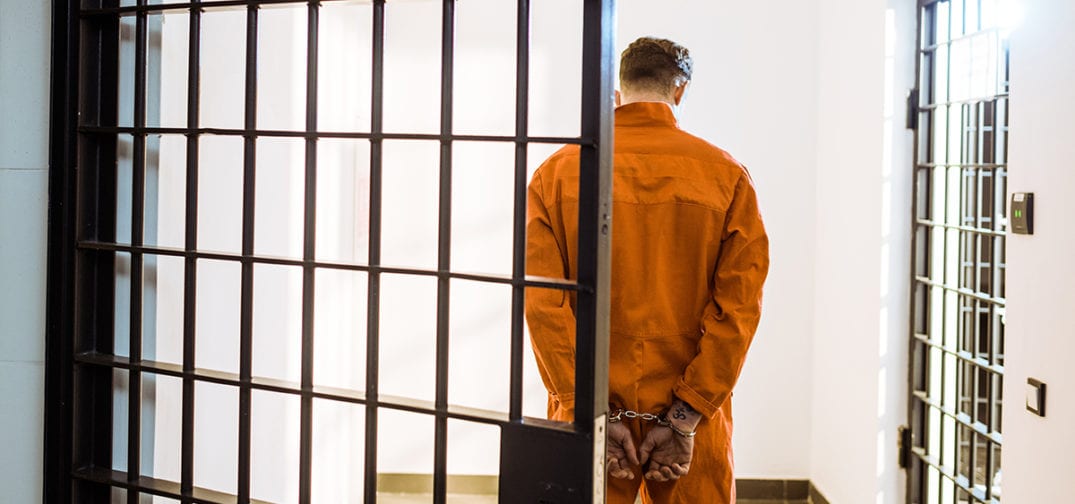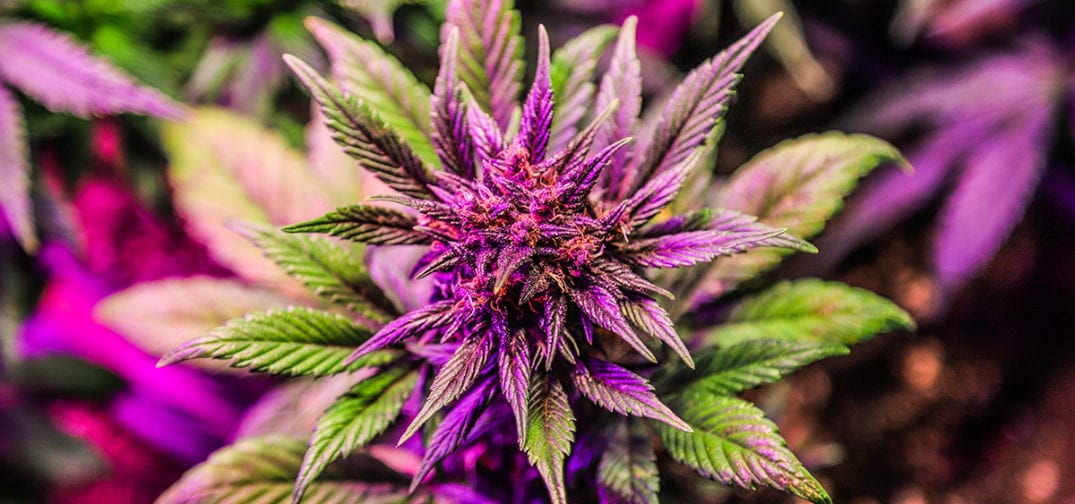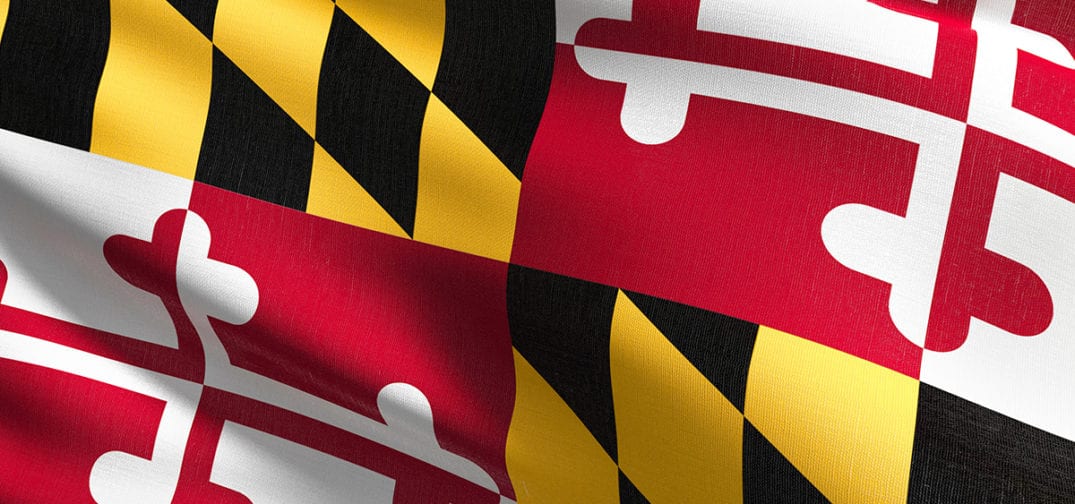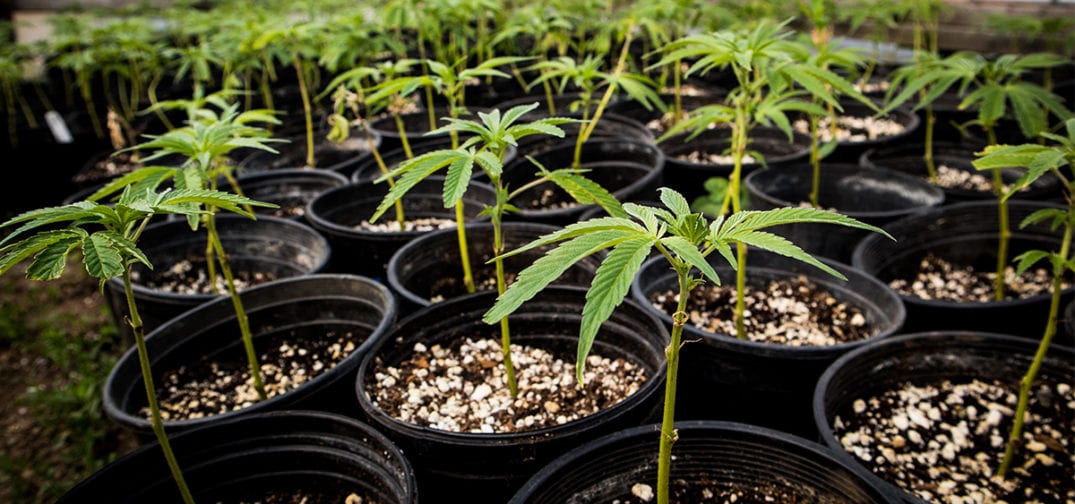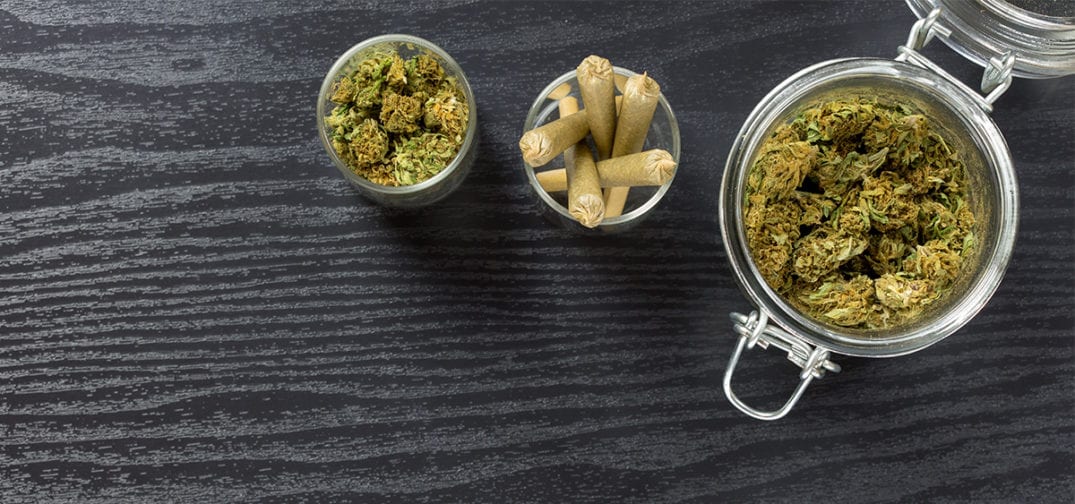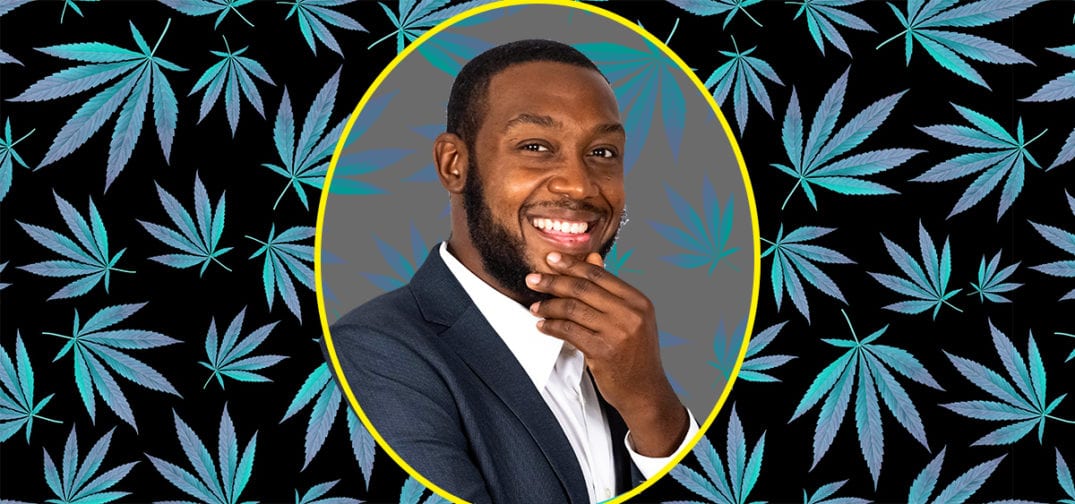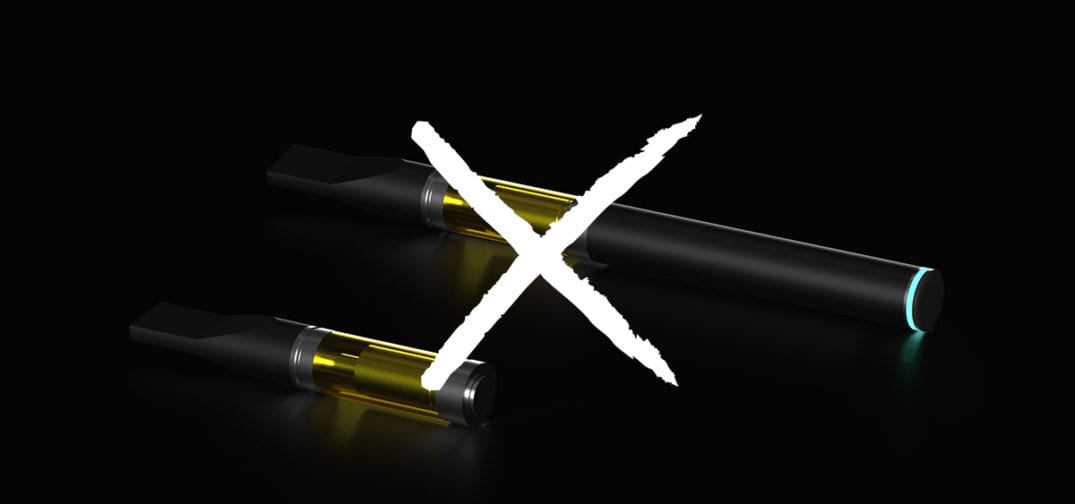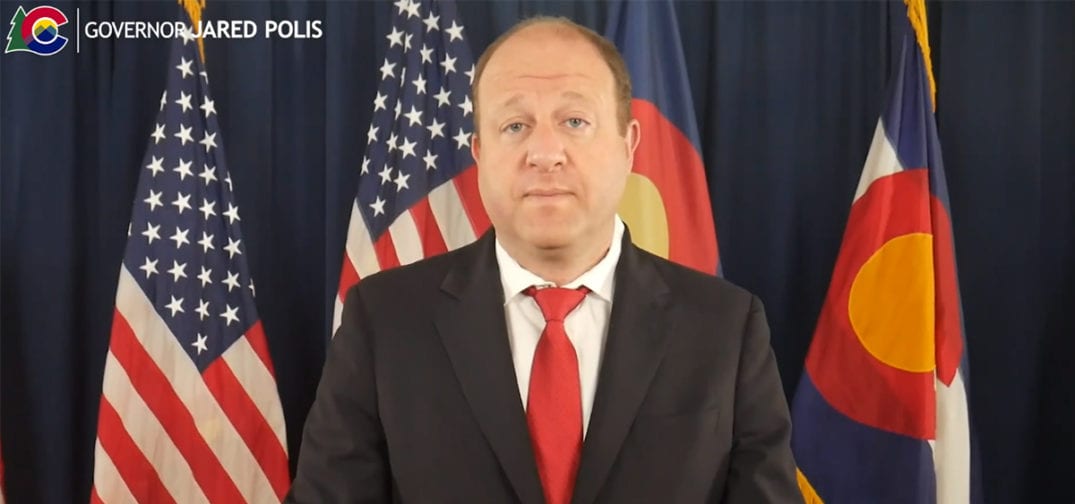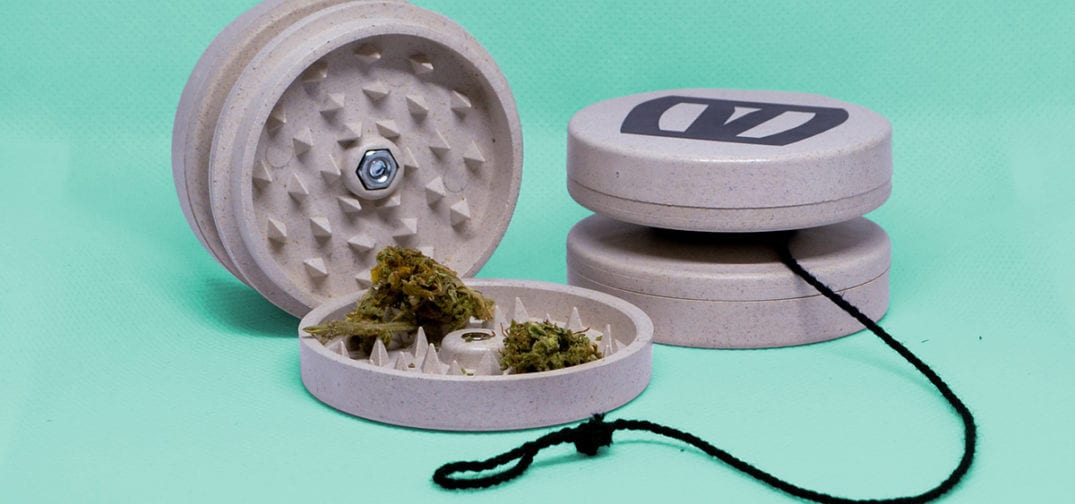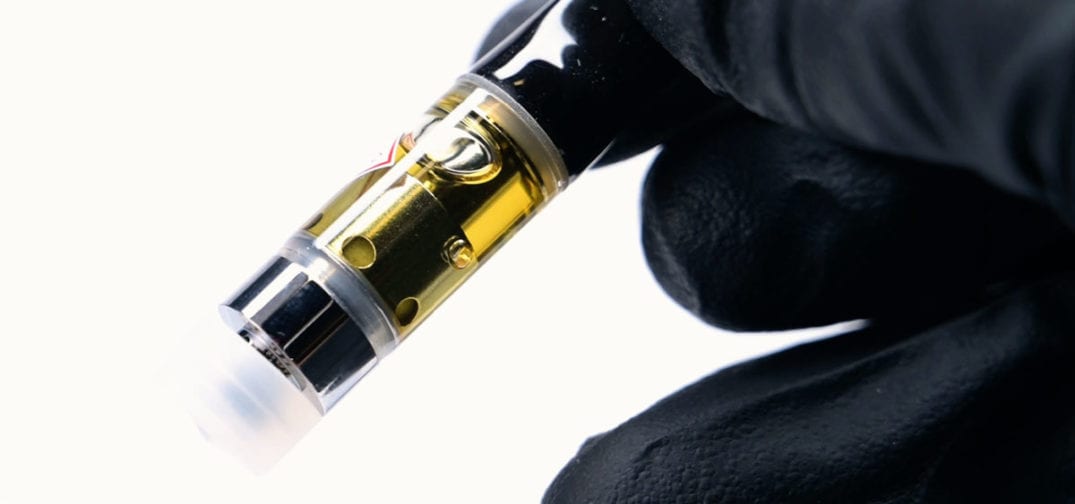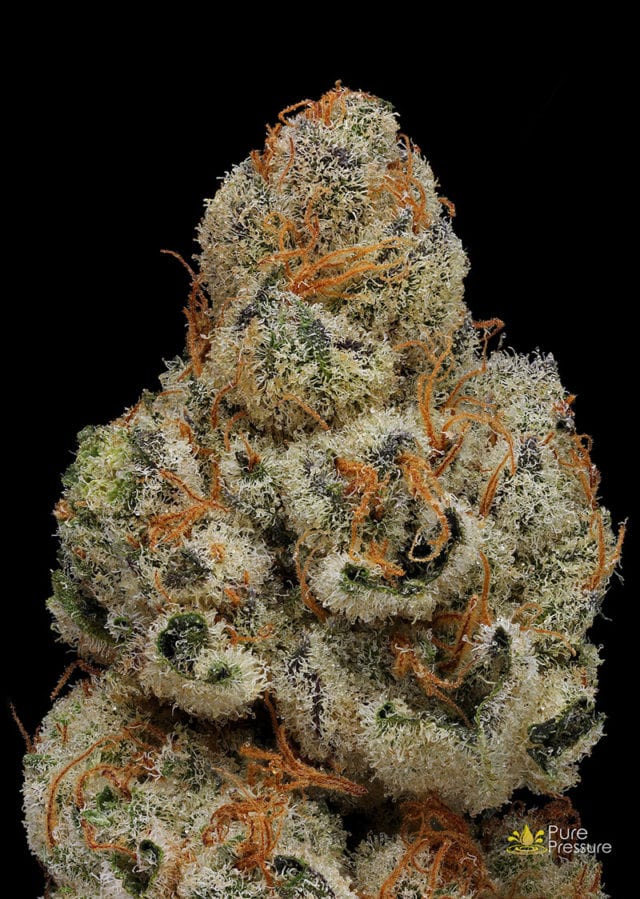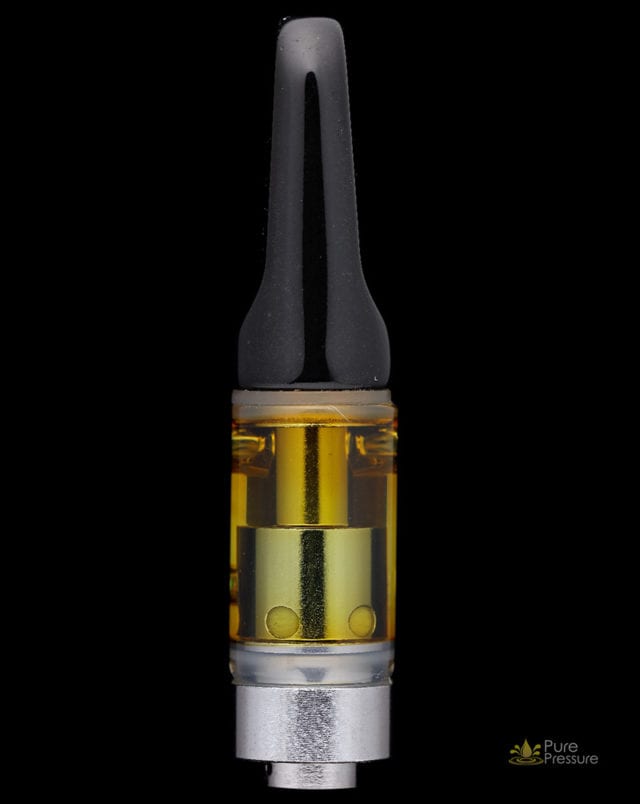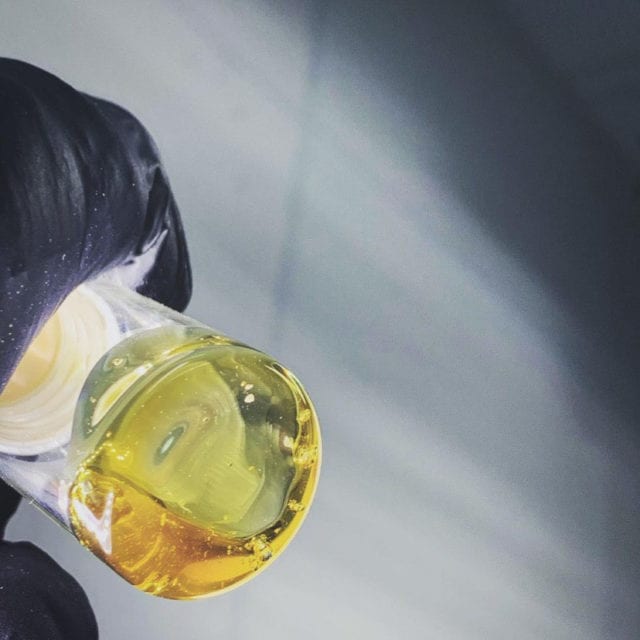To launch a successful cannabis cultivation facility, one requires a significant amount of planning, resources, and initiative. Launching during a worldwide pandemic, however, makes things a lot more difficult — and that was the unfortunate reality for Massachusetts’ JustinCredible Cultivation when they were finally approved to open last year.
Reginald recently joined our podcast host TG Branfalt to discuss his entrepreneurial journey toward the cannabis space, the lessons he learned along the way, and stories from the founding and creation of JustinCredible Cultivation, which is the first minority-owned general business applicant to open a cannabis cultivation facility on the East Coast. This interview also covers securing investments, Reginald’s tips for building a scrappy and effective C-suite team, what he looks for when hiring new employees, and more!
Listen to the podcast:
Read the transcript:
Commercial: At Ganjapreneur, we have heard from dozens of cannabis business owners who have encountered the issue of cannabias, which is when a mainstream business, whether a landlord, bank, or some other provider of vital business services, refuses to do business with them simply because of their association with cannabis. We have even heard stories of businesses being unable to provide health and life insurance for their employees because the insurance providers were too afraid to work with them.
We believe that this fear is totally unreasonable and that cannabis business owners deserve access to the same services and resources that other businesses are afforded, that they should be able to hire consultation to help them follow the letter of the law in their business endeavors, and that they should be able to provide employee benefits without needing to compromise on the quality of coverage they can offer. This is why we created the ganjapreneur.com business service directory, a resource for cannabis professionals to find and connect with service providers who are cannabis friendly and who are actively seeking cannabis industry clients.
If you are considering hiring a business consultant, lawyer, accountant, web designer, or any other ancillary service for your business, go to ganjapreneur.com/businesses to browse hundreds of agencies, firms, and organizations who support cannabis legalization and who want to help you grow your business. With so many options to choose from in each service category, you will be able to browse company profiles and do research on multiple companies in advance, so you can find the provider who is the best fit for your particular need.
Our business service directory is intended to be a useful and well-maintained resource, which is why we individually vet each listing that is submitted. If you are a business service provider who wants to work with cannabis clients, you may be a good fit for our service directory. Go to ganjapreneur.com/businesses to create your profile and start connecting with cannabis entrepreneurs today.
TG Branfalt: Hey there, I’m your host, TG Branfalt, and thank you for listening to the Ganjapreneur.com Podcast, where we try to bring you actionable information and normalize cannabis through the stories of ganjapreneurs, activists, and industry stakeholders. Today I’m joined by Reginald Stanfield. He’s the CEO and head horticulturist of Massachusetts-based JustinCredible Cultivation, the first minority owned general business applicant to open a cultivation facility on the East Coast. How are you doing this afternoon, Reginald?
Reginald Stanfield: I’m doing amazing, man. I’ve been looking forward to this conversation. Happy to be here.
TG Branfalt: Me too, man. I’ve seen a couple of interviews with you. I’ve been watching your Twitter, and I’m real excited to pick your brain and get a little bit about your experience in this space. You have this super unique story, and I want us to talk first about that, your background, how you ended up in the cannabis space. I had read that you had actually slept in your RV at one point. Tell me the whole story, man.
Reginald Stanfield: I’m going to make it as short as possible. 2012, I was working for this great company called Adam and Watson Associates underneath this great boss called Janelle. She taught me a lot of what I do now, where I practice. But being the ambitious person I am, I didn’t like constantly signing their names. I would spend six, seven hours doing something and it’s Janelle or it’s Ivan, and I didn’t like that.
I started bartending. Had a girlfriend and wanted me to do it. Long story short, I did an event for a small company. I hated what they did. I was on a phone call with one of my best friends in life. I’m talking to him, I’m like, “Hey man, dah, dah, dah.” He’s like, “Well, why don’t you do it yourself?” I was like, “Fine. Help me do this.” We came up with the name Masters of Mixology. He came up with the logo and I started doing it myself.
Then I got addicted to the thrill of having the challenge to bring people what they want. That led to me taking what I graduated, which is accounting, finance degree, which I did most business classes, to building company structures. I had people message me, “Hey, I see that you run this business. Can you help me with this? How do you do that?” I was like, “Well, I might as well start a management company.”
Me and him, we started a management company. He’s a creative design. I’m the business structure. Neither one of us are organized at all. We added our she role, our boss lady, Che’toia to come bring some structure to us. At that time, I had a friend of mine who was a… I don’t like to say bully because you can’t really bully me, but he was somebody who we weren’t friends in high school, and then we became like brothers our last year.
He quit his job. He was like, “I’m miserable. I want to just come do what you do. So he joined with me. And then from that point, we launched Modern Monopoly Management, which led to us building businesses all across the United States, from JustinCredible weddings, to JustinCredible installs, to supporting brands like Infusions and HBCU Traveler. We built our own structure. One day we were sitting in Texas, something had went crazy with the Houston market. Hurricane Harvey hit, killed a lot of people, destroyed the industry.
We went to Dallas, Dallas wasn’t the same market. I was sitting there, my partner editing videos for hours and hours on edge and I was like, “Hey, Mass said they’re going to recreational. The regulation seems like we can go there. What’s up?” We shut down three of our businesses and we all moved back home to our parents’ house to save as much money as we could.
We did R and D. We drove to Colorado. We drove to Illinois. We drove to everywhere. We just went. We went to there and every dispensary were like, “Hey, how do you guys buy your weed? How do you do this? What’s the standard you have? Is it cured? How long does it cure for? How long is the drive for it? We got all the information from the bedtenders. We got to see a couple of grows. We got to do all of that. It was cool.
I even got arrested for my first time during that process. I got arrested in Illinois in Effingham. Effingham City, got arrested there for a marijuana possession for the first time. I’ve been doing this forever, just got arrested for it. We did a Google search because everybody’s saying, “How did JustinCredible end up in Cummington.” We did a Google search, boom. That was the only property we could afford and we just decided to go there. So that’s how we started off.
TG Branfalt: Tell me about leaving your job as a financial manager to strike out on your own, not just in the cannabis industry, but broadly. What advice can you offer to people who want to pursue their goals, but have stable jobs that might make them think twice?
Reginald Stanfield: You’ve got to know yourself, man. The same as the things that I go through, everybody go through. I actually brought my dad in to do IT work. I was 21 years old. Was an office. Average age there was 45. So me bringing my dad and him seeing me with this and him making money, he’s like, “You’re crazy.” I had jokes from parents. I had jokes from neighbors, peers, or just a little bit older than me making jokes about not having a job. It was hard. The only advice I could do is just never give up.
I’m not one of those entrepreneurs are going to sit there and it gives you that speech and any… It’s not for everybody. I have the ability to be extremely uncomfortable for very, very long periods of times, and a lot of people don’t have that. So you’re going to miss the family vacations. You’re going to miss the family reunions. I look back now. I’m on this track for eight years. I look back now and I’m not in a lot of photos. You know what I mean?
I’m thinking like, “Oh, I was there.” No, I wasn’t there. I’m reliving your memory. So you have to be able to be uncomfortable, but know yourself. Know what makes you happy. And then, does that type of sacrifice to your personal life, is that for you? Because if it’s not, then you should start your business while you’re working and you can have that duality where…
Your business success can take 20 years to become successful. You know what I mean? As an entrepreneur, if you quit your job, your bill’s going to come due once that saving runs out, and it always runs out two times faster than you expected. So you just have to know yourself, man. You have to know what you’re doing.
TG Branfalt: I think that’s really astute advice. I mean, especially since you’ve done so many different things. It seems like uncomfort makes you comfortable to some degree.
Reginald Stanfield: No, not at all. I make it look real easy, and I’m not… I swear. I promised to myself I would not be the entrepreneur that comes up here and lies to people. No, I’m not. It doesn’t make me comfortable. It’s very uncomfortable. I have people who believe in me, you know what I mean? I have people who quit their stable jobs, who gave us their money and I owe them not to quit. You know what I mean?
My company, we could have been successful all from one business, but I was preaching and we had meetings, and of course, arguments, because we’re all friends. We’re all living together. I’m like, “We have to be perfect. There’s people out there that can get by and make a lot of money doing what we’re doing, but we have to be perfect.” We want to be this top company. That’s why my name, I go by Forbes Next, because I’m going to be the next person number one on Forbes. So it’s a whole mindset.
I told them, standing in Texas, meeting after meeting, “Somebody is going to give us a million dollars to do one business, and we’re going to have one shot.” That’s how I do. I’m definitely not comfortable being uncomfortable. No, I’m not. I don’t want to lie.
TG Branfalt: You were the first minority-owned general business applicant to get a grow license in the state of Massachusetts and on the East Coast. I don’t know your background, I don’t know your history. And so, my first question is were you able to potentially get one of these economic empowerment or social equity grants in Massachusetts? If you were, why did you choose to take that general applicant route?
Reginald Stanfield: They only put out the equity program for like two weeks and then they closed it. I’m not going to come up here and trash talk the regulatory process like everybody does because they’re doing something that they don’t know how to do. You get what I mean? And you can’t just copy and paste Colorado or Illinois because the law and regulations and bylaws of certain places, they have certain nuances that we don’t know about.
I’m not a political major. I don’t know if this thing could be a conflict to this thing. It’s just like growing in my mind. Yeah. You can grow in Fox Farm soil and not have any heavy metal test, but let me grow this one strand and it does. So I don’t want to trash talk the regulatory process, but they opened up the portal for that for like a month maybe. It was open and close.
The go out there and have to find somebody to give away 50% of my business to, it just wasn’t… I couldn’t qualify for Massachusetts social equity or economic empowerment, coming from a different state and everything. I think that’s what’s weird about it. They now do have veterans owned, women owned, and minority owned business enterprise type of push through, but they should have known better. They should have known better.
TG Branfalt: Well, they are regulators. It’s not going to tell whether or not they will ever know better. Why cultivation rather than other retail or other sectors? Cultivation, from my understanding, is really one of the hardest licenses to not just get, but to also maintain. So why did you choose that route?
Reginald Stanfield: Because I’m comfortable being uncomfortable. Now, I’m just messing… I come from farmers, man. My parents made it and they did… They worked so hard all through my childhood to provide us with a stable family, but where we like to call what we call family poor. You know what I mean? We live in a nice neighborhood, but we take care of both sides of our family. You know what I mean?
My parents pay the bills for my grandparents, for people in our family, all the way through. Where we’re from, they’re both from Roxboro, North Carolina, 10 miles away from each other. They grew eight to one household and then like four to one household, making their money by farming. I grew up in the tobacco field. I remember, five years old, in the tobacco field, on the back of the truck, watching people pluck tobacco, giant worm falling on me, freaking out. You know what I mean?
Years later, I’m in the tobacco fields swearing I would never do this again. You know what I mean? I grew up with it. I grew up with the hog pen, running past the hog pen. If you’re hungry, there is no inside. You go grab a peach, or a plum, or you go grab some fruit, go to the strawberry patch, hit the water hose. You know what I mean? That’s how I grew up. I didn’t grow up with technology or in the city. I grew up on a farm, and I can grow.
My mom, in Upper Marlboro, if you would see our backyard, we have 25… We have all this fruit stuff, fruit in everywhere, bell peppers, lemon trees. We have everything in a suburb backyard. So I grew up touching a plant. I love growing. I started growing in my closet, seeing my cousins grow, and their guerilla grows. I’ve been a part of that. It’s easy for me. Growing, even when I’m teaching, you go teaching certain methods and I’m like, “You just have to learn how to touch the plant.” You know what I mean? I have that feel.
So it was natural in my mind to go into the industry. Also, as well, I don’t believe retail is going to be the future. You know what I mean? If anything, Blockbuster told us that once Netflix starts knocking, you should start switching too. You know what I mean? Blockbuster could have switched their methods right when they saw Netflix. They could have done the same thing and could have maybe stayed. But I think retail, with the virus happening, with people… Uber Eats.
I go to Atlanta, I’m spending money off of Uber Eats. I don’t care if it’s $20 more than me taking a 15-minute drive. But there’s no way I’m going outside if I can get somebody to bring me my food. So I believe that’s the method of the market. We’re going to go towards delivery. Also believe in controlling the textile. Cannabis itself is what we’re selling. Even if you’re making into edibles, tinctures, you have to start with me.
I want to be watching Jeff Bezos and how he did his empire. He started controlling things that made for Amazon’s success. It wasn’t just marketing. It wasn’t just, “I have the…” No, I’m going to control distribution. Then I’m going to control the internet, the services. And then I’m going to control all the products. You know what I mean? So for me, once this blows up, I’m trying to control what everybody else is forgetting about.
I think, if you go West Coast, it’s brand, brand, brand, brand, brand, brand, brand. If you go Colorado’s brand, brand, brand, brand, brand. Well, I get it, so many of us right now. But eventually, it’s going to get down to who cares about the plant most, and that’s where I’m putting myself at, to maintain.
TG Branfalt: I really appreciate you sharing. It’s an incredible story, man. I live in a rural location now, but I have access to technology. So to think about tobacco fields in North Carolina, I mean, it just seems like a world away.
Reginald Stanfield: Yeah.
TG Branfalt: You’ve done incredible things with raising money. Your business has raised $1.3 million. Can you tell me what you think stood out to investors, that led to you successfully raising those funds?
Reginald Stanfield: Me? I mean, I keep it 100%. It’s me, but I don’t want that to come off narcissistic or cocky, like me on my team. You get what I mean? I have people behind me who are going to be just as uncomfortable as I am. The fact that I go into these meetings and they’re doing their work, they don’t want to be seen. You know what I mean? My partners aren’t scratching for the limelight. To be honest, I’m an introvert myself. So I’m just the one that stepped forward.
The way we sat down and we think about things, we go over stuff, we’re so positive and we’re so people-first that we can come in and read a room. I’m sitting here listening to investors. I go into the town of Cummington. My first meeting I go there is the general store, Dollar, pitching to come there as well. And they rip into them. They just go, and I’m like, “Yeah, we’re going to scratch that whole 40,000 square foot facility idea. We’re going to have to go small and then expand.”
So we go back and we dig into the numbers and I’m like, “Well, how do we get this here and what do we do? Well, let’s focus on the brand of JustinCredible. We can go as small as possible.” What we did is we shrunk the plan and we made it small. Well, on that news, doing research, a lot of people aren’t investing in cannabis as well. So me walking up to you, you don’t know me, “Give me 10 million.” Come on. That’s different than me saying, “Hey, I need 300,000.” You know what I mean? I can say 300,000 and turn it into four or five million. You know what I mean?
That’s what we did. And then, luckily we caught a bigger investor halfway through and he loved just a pitch. Same as that pitch I gave everybody, sensible. We’re going to start for us where we get into the market and then we’re going to expand fast. He loved it. We just built our relationship from there. That’s where we got the rest of our capital from. We raised half, friends and family, and the other… Well, I’ll say, the other 800,000 came from one source.
TG Branfalt: You talk about members of your executive team, they don’t really want the limelight, that they’re working while you’re doing this, you said. What do you look for in members of that executive team? And what about the day-to-day employees? As the CEO, what qualities are you looking for in these people?
Reginald Stanfield: Yeah. I’m what I like to call a people-over-profit CEO. That’s a cool question. I’ve never been asked that question about, what do I look for, for my C-suite. Loyalty is the most important thing, and it’s what I call maximum effort. If you can’t jump 10 feet, I want to see you squatting as low as possible. You know what I’m saying? Thrusting yourself up high as possible. If you only hit eight, then I can take your eight and make it into somebody else’s barely… I can do 10 by just jumping, because that maximum effort is what it takes.
I tell my team all the time, it’s not really what you do all the hundred times. It’s that one time. All it takes is that one time. If you’re not giving maximum effort, if you’re so used to, “I can jump 10 feet no matter what,” then you’re going to do it and sometimes you’re going to fail. And that one time you fail is the time you jump seven. You get what I mean? That low is too much, because we have to be perfect. We have to be 99.9. So I need you to jump that eight every time. You get what I mean?
If I go and I pitch to you, “Hey, I’ve got somebody that could jump eight every time. No matter what they do, they’re going to jump eight.” If you give everything to me, then I can pitch that. I can sell that to a person, I can’t sell, “He’s a super talented person, but sometimes I don’t know what I get from him.” And that’s what that person who can jump to 10. He can probably jump to 20. But when you slack off and you take for granted your talent, I can’t use that. So I look for that loyalty and that maximum effort, people who are going to come in and believe in me and say, “I want to give your all.”
From employees, and it’s weird, because it’s one of our first times with this grow, over the last couple of weeks, have been dealing with lower level employees because it’s just been us owners. Man, I just want somebody who cares about the plant and they want to build their future. They don’t want somebody to give them a future. It doesn’t have to be, “I’m going to be a millionaire.” No. I want to pay for a nice, comfortable house and I want to grow weed. This is my dream.
If you come to me and just like we have a guy named Dat, who came to me and he’s like, “I really love the plant. I want to learn.” That’s all I need. I still need your maximum effort as an employee, for eight hours. I’m not going to expect you to do ownership, but coming here and showing me that you do care about the plant. If you sweep floors, show me that you’re really great at sweeping floors because when I expand, I have 15 people working here, we’re going from 15 to 120. You get what I mean? So this executive manager spot’s open, so I’m going to see that, you know what I mean? I’m going to take care of you. You take care of me.
TG Branfalt: With these lower-level employees, are you the one who actually conducts the interviews?
Reginald Stanfield: No. Che’toia, she does the interview because I don’t have the patience for that. But I’ll walk in and I have my vibe I do. I throw a couple of questions out there and I just see how they react. I like to use some 40 laws of power and see how they react to this… You’ve got this gorgeous woman, short, because she’s small. Che’toia’s like 4, 3’11. She’s small. We have this small person who’s smiling. Yeah. You’ve got this pretty smile and beautiful eyes looking at you, this soft voice talking to you.
Then here comes 6’4 walking in the door and I’m like, “Hey, yeah. So how do you feel about that? How do you feel about this?” And I’ll walk out. I’ll be in an interview and I’ll just get on the phone and walk out. We’ll have a conversation later. So I hit a little bit, you know what I mean? I don’t believe in interviewing. You know what I mean? Interviewing is interviewing. Everybody puts their best foot forward. No, I like to jab a little bit and do my own thing with that one. I’m not a HR person.
TG Branfalt: You might be the most interesting CEO that I’ve ever interviewed.
Reginald Stanfield: It’s winning. I’m winning on that one.
TG Branfalt: Obviously, the last year, we’ve been in the middle of this pandemic. How’d you manage your cultivation business during the pandemic? What were some of the challenges?
Reginald Stanfield: We were almost one of the businesses that were lost during the pandemic. On the day Massachusetts shut down the cannabis industry was the day we get our license. Like I said, we were sleeping in RVs building the building before we were licensed, doing everything we could do to get this building up and running. Like I said, we didn’t have an unlimited budget. We didn’t get 1.3 million, go. We got 125,000, another 125,000. Here goes 25. Here’s 22. So we got our money in pieces all the way up to the very end.
Even with our big investor, we had to keep going back to them like, “Hey, we need more.” To be honest, Sonny, great dude. He went on and find more investors. I have to frame that correctly. It’s not like we had some money and then we went and got a whopping sum. No. We went and got this group with a great person that’s out of it, who was well-connected who, “Hey, man, 200,000. We need another 150.” So during the pandemic, we got shut down.
This is going to sound so weird. I already feel like I’m eccentric going to this interview, but that was one of the most proudest moments. At the same time, it was bittersweet. It was proud and then it hurt, because we stayed up for four days. I’m not over-exaggerating because I say stories and people will think that I’m over-exaggerating, until they actually come to the building or something happens. But we stayed up for four days.
I don’t mean you work 20 hours to get four hours of sleep. I’m talking about 24 and you’re still going. Go back to the hotel, take a shower. Get you an hour and come back to the site. We had to get to the point where it has to be three people in the car, somebody watching the driver. You get what I mean? Because it had to be two people watching the driver, because that’s how exhausted we were. Running to go to Home Depot to get this paint because we have to paint this or patch this hole, or this door doesn’t have a lock on it. We forgot to replace the lock.
It was a crazy four days, everybody on my team. And then, it got to the point where I saw everybody peak and it was beautiful. It’s like you get that synergy, that ring coming together. And it was like, at this point, nobody can give anymore. I was like, “This is how I know we’re going to be successful,” because everybody gave that last little bit you had, you know what I mean, when you know you can’t go no more, and then you keep going, and then they finally hit that, that’s what I saw.
So it was beautiful. But breaking the news to the team was hard. You know what I mean? It shocked me to my core. We had moved the RVs to get ready for the inspection. We were getting them clean just in case we got shut down, because we didn’t want to leave them full of food and sitting out in the site. Right when I parked the RV, I’m getting ready to go into the hotel to switch out to a nice shirt, to get ready for this inspection, because I don’t know what to think of. It’s like nine o’clock, they’re going to be there at 11:00.
My phone rings with the inspector, his name is saved. I’m like, “All right, he’s calling me, telling me he’s on the way,” because we have a really connected relationship. I’m like, “Hey, Mike,” because he won’t let me call him Mr. McCarthy. I’m like, “Hey, Mike.” He’s like, “Hey, Reginald.” I hear it. I’m like, “Maybe he’s just going to postpone it.” He goes and say, “I hate to tell you, we’re going to have to indefinitely postpone the inspection.”
And then, at that moment, it’s like… I almost threw my phone and I just dropped. He’s like, “I’m sorry. I’ll let you know when I figure some stuff out.” I asked him some questions and we hang up, and then everybody, the people outside are looking at me. I think it’s my cousin, he works for us, he’s looking at me. And then my business partner, Jonathan, and they’re like, “What’s up?” And I’m like, “Man, they just canceled the inspection.”
I said, “I don’t tell nobody. Call them down to the lobby of the hotel.” So then I called everybody into the lobby of hotel. But Justin, being a rock star he is, he’s at the building for the fourth day. He’s the one who stood behind making sure we’re getting our CO that morning. We’re getting the building… We have the building inspector, fire chief, electrical inspector there. The internet went out and you need the internet to do the CCC inspection. So we have the internet dude on the roof. He’s there handling all of this and I’m trying to call him. He’s not picking up.
I wait. I just break it to everybody. And then, you know what I mean, of course, people were moved to tears. And these are people I don’t really see cry that often. I was like, “You all, go ahead chill out here. I’m going to go ahead and go back and get T and tell him what’s up.” So I go back and then he calls me. He’s like, “Yo, we got the CO. The internet’s working and we’re ready for an inspection.” I was like, “All right. Cool. I’m going to talk to you when I get there.” I tell him when I get there, and then he takes it in and doesn’t allow me to see him react to it, because then he has to come next to me and become the leader for the rest of everybody else.
We get back together and I go buy bottles. You know what I mean? We’re going to go buy some bottles. We’re going to get some bottles. They stayed up and enjoyed the bottles. I wasn’t going to. I tried my best to, but I just went to sleep. I kind of passed out. I couldn’t take it. Because I’d taken everybody’s energy. I feel like I absorbed all the sadness and all that for them, and I went to sleep and they stayed up right next to me, partying, had a good drink on.
Then we just went home. Everybody went home and waited. That was crazy. Sorry, I know it took so long, but eventually, we got the call July 11th. July 11th, we went back up. We did the inspection. We passed the inspection. Then we had to do another one for a final. We did on the eighth. They put us up on the agenda. And then I noticed, after my research, nobody has made the agenda that had been declined. So I’m sitting there like, “Oh.” And they’re like, “It’s going to be virtual.”
We’re on the phone, and we’re driving, and we’re all in Massachusetts, like, “Hey.” Then we get the call like, “Boom, you guys are ready to go. You can start growing.” You know what I mean? Then it’s just crazy because then now we’re out of money, so we have to raise more money. We have to learn how to do this with just us because we were going to add some people. But I have terrible asthma. I actually had to be resuscitated in 2018. I was on life support for like five days, yeah, died for like five minutes.
Luckily, my parents got me to the ER in time. I know she didn’t bring this up, but they got me there in time to resuscitate me. I was dead on the pavement. The ER was pulling up, and they got me, brought me back, and I was gone for five minutes. But I have terrible asthma. There was no playing around for me when it came to COVID. So we all went home and we quarantined. I think we all needed it. You know what I mean? I think we all spent the three months literally… We were maybe the only people in America who actually stayed home and didn’t [inaudible 00:30:06]. We were in the house.
So it was a challenge. Even still now, hiring people is a challenge with COVID. You’re in a grow. You’re already hot. You’re already moving around sweaty and now you have a mask on and already you have your PPE. You’re gloved up. I know people say that there’s no oxygen change with masks. But I’m sorry, it’s different. It’s a different thing. It makes you hotter. It makes your breath humid and it’s discomforting. Now having to enforce that where…
All of the owners, we live literally in close proximity. We either stay in the same apartment or we ride together to work. So we don’t have no mask on while it’s just us. But adding more and more people, now everybody has to follow it. So it’s tough, man. People are losing their businesses. And then, at the end of the time, only big businesses get the grace of COVID. They get to learn how to operate with COVID. Small businesses, we have to be perfect. I know that was a lot. I apologize.
TG Branfalt: No, no, no. I mean, it’s very interesting. I mean, you were trying to get a license when they shut it down, and ultimately, they ended up declaring cannabis as an essential business.
Reginald Stanfield: They never did with us. They never did with Massachusetts.
TG Branfalt: Really?
Reginald Stanfield: Yeah. They just ended the shutdown.
TG Branfalt: Oh, got you.
Reginald Stanfield: We never got declared essential, which is bad mistake.
TG Branfalt: One of the other issues with Massachusetts is relatively new. It’s the strict microbe testing policies. Can you tell us more about that and how it’s affecting you as a cultivator?
Reginald Stanfield: I’m trying to understand more of the science, so I’m not sounding ignorant. But from what I got is they’re testing all microbes, not just bad ones like chlorophyl or all the other bad ones, yeast mold, even to that point. They’re not testing things in the way… They have a total bile test, that if you consume it, what happens in your gut? But nobody takes raw flower and eats it. You get what I mean? Yeah, unless you’re trying to get away from the cops, which you’re not worried about anymore.
So it doesn’t make sense to test for certain things if you’re not using it in that fashion. If I can then turn around and make it combustible, you know what I mean, which gets rid of everything that wouldn’t get rid of if it wasn’t combustible, you know what I mean? It just doesn’t make sense. For me, I was one of the trash talkers of the industry, like, “Man, my Massachusets weed is terrible, is this…” I understand it now because you grow in soil, you have plants everywhere, you’re kicking on microbes. You know what I mean?
You land on your plant. You fail a microbe test, you just lost 75%, 80% of the value of your product, just by a microbe. You know what I mean, landing on your plant, and then they breed. So you can’t follow the sprayers often as you want to. You can’t really treat. It’s making us grow super sterile. Where is the study saying it has to be this way? You know what I mean? I listened to one of your podcasts about the guys with the edibles at Colorado, and I totally disagree with everything he’s saying, you get what I mean?
He should be talking about medical. And if he is, then I agree with him. Medicals should be straight. Let it have nutritional values. Let’s test the hell out of it for medical patients. But I can go get a bottle of tequila and I don’t know what’s in it. There’s no nutritional fact. I’ve done the studies. People die a lot, thousands of thousands every single week, in America from drinking. You get what I mean? We’re not even talking about the cancers they’re producing. We’re just talking about strictly drunk drivers.
So why can I destroy my body with liquor? I haven’t even touched on tobacco, but with liquor, if I can’t destroy it with marijuana, when we’ve been smoking untreated weed for hundreds and hundreds of years and ain’t nobody died from it yet. So where’s the evidence that me smoking moldy weed ain’t going to do nothing but make me cough too much and I’m going to hate it? Where is the examples that heavy metals are going to make me sick if it never has done it?
If you are a patient, I think you should go to the medical side. Go get your car. If you have to give up your guns because of that, I’m sorry. You know what I mean? If you don’t care about that, we should have a market that is called recreational, adult use. I’m an adult. Let me choose what I want. You get what I mean? Let it be up to us how we pursue it. You don’t go get a pack of Marlboros like, “I know this tobacco ain’t got no yeast on it.” You know what I mean? I don’t get it.
It logically doesn’t make sense to me. And then all these other recreational people who don’t want to go medical, I guess, they’re trying to win over regulators and new states by champion for testing and champion for this and that. I’m not for it because even THC and terpenes, we don’t even understand it to the point where we know this amount of THC does this for sure, does that for sure. We don’t even know that yet.
What you’re doing is you’re making it so that the bigger guys who can afford to massively produce and they can fail 30% of their flower and not care about it because they can send it up the chain vertically to get turned into edibles and other things. You’re giving it so that little guys like me, we can’t survive because we have to pass testing. 10 pounds for me being failed is $40,000 I lose. That’s huge. You get what I mean? That’s huge when we’re operating, we’re paying for everything ourselves.
I think it needs to be readdressed and we need to get more… We have to make a decision. Is cannabis recreational or we just all medical? You know what I mean? Or we’re all just using it for medical, then get rid of the recreational market and just say, “Everything’s medical and these are the guidelines.” I don’t know the difference between what I have to do and what they have to do. I’ve been told the only difference is my tag is blue when there’s this pink. So I just think it’s crazy, man.
I don’t care about yeast and mold if I’ll have… Sometimes somebody might want to buy some yeast and mold. You know what I mean? They’ve got $50 and I go get some oz. You know what I mean? And they want to buy it. I’m not saying visible, but a high yeast count or a high microbe count. Come on, now. If you started smoking in the early 2000s, you come from some brick, Mexican weed. You all get a little bit too fancy.
TG Branfalt: I miss beasters to this day. I still miss beasters. I mean, to your point, I mean, I’ve been smoking weed since I was 15 years old, but on a basically daily basis. And I’ve smoked moldy weed, like literally saw the mold and said, “Fuck it. What else am I going to do?” And I’m fine, and I was fine then.
Reginald Stanfield: You’re not going to go complain to the weed guy because then you might not get the good deals anymore.
TG Branfalt: It was fine. It was fine. I figured it out. No, and I appreciate your candor, man. I really do. I mean, on this show, I have a habit of complaining about over-regulation. This is something that I never really thought about because I’m not a cultivator, just the onerousness of this. For you, what do you think the most pressing social equity issues are in the Massachusetts industry? And what about the industry as a whole?
Reginald Stanfield: Ooh. Okay. I don’t want to sound like the bad guy. I am not a proponent of social equity. I’m a proponent of economic empire, and it’s because of why? It’s not because I don’t believe that this market was not built on people like me, because it was. Every governor, mayor, who championed for marijuana, cannabis, stood up and said, “We’re going to undo the right that dah, dah, dah, dah. We’re going to make it.” And they lie. They all lie. Because what you’re doing is then you’re turning around, creating something that’s over-regulated for people that are not like us. You get what I mean?
A lot of my people who do grow, who do sell, they are not structured business people. You get what I mean? They don’t know how to fill out an application of security SOPs. And then you turn around and have to have all this stuff done before you get a license. By the time you get to that stage, you already either have to sell all your business away to another person because they know how to do a business and all you know how to do is grow, all you know how to do is make edibles, all you know how to do is sell, and they know how to get a license.
By that time, you done sold your business away, or you don’t even operate it. You operate one portion or you become a figure head. And they tell you who your C-suite is, who all that is. I have my business. All my partners and everybody who is C-suite I’ve known for 10 plus years. I’ve decided to go my way to build people up because, say, one of them want to leave my company today, they can go start four or five businesses and they can give somebody else their viewpoint.
So I don’t agree. There’s a lot of social equity plans that they go and find already successful minority entrepreneurs and then give them the license. That’s not the way you teach. You know what I mean? I don’t agree. I think Jay Z said it, about how teaching somebody, once they’re rich, once that person has already made it rich, to go back and teach is impossible. You know what I mean? The people who are with me, they’ve seen the struggles of their boss from zero to now successful.
So they know everything. Even if they don’t want to redo it, they can go teach it. They can go and say, “Hey, no. You’re going to have to talk to people a certain type of way. This is the war zone working with your friends. Here’s the role. This is what Reggie did. If I’m successful now, I get people to support me who already are business people. Then when I’m successful, all these steps I took, I forget, you know what I mean?
So, in my opinion, if we want to build the social equity and the economic empowerment, we need to find entrepreneurs like me, and shout out to Elev8 Cannabis after all like Seun. We need to find those entrepreneurs and we need to empower those people, the people who will sleep on their couch. I mean, there’s a lot of us out there. There’s Ulysses, and Laurie, Major Bloom. There’s Rebel and Greybeard.
I know a lot of people who are like me, who are cut from the same cloth, that because of them, now five or six of their friends have jobs. They go from making 30,000 to now almost at a hundred thousand because of their expertise. So, no, having this open portal, yes, it does work. But look how long it takes. It’s only in Massachusetts, two maybe social equity applicants open after three years. There’s only two. What sense does that make? But it’s already three general applicants open. You get what I mean? And that’s us with nothing.
Think if you take that social equity and give it to more people like new who can’t qualify. You get what I mean? Let’s make standards. You have to hire so many people. We can do this. I feel like that social equity stuff is too… Why does it matter who lived there? You know what I mean? It doesn’t matter who lived there. Maybe let me start the business and say, “Hey, the employees you hire have to live here.” But I’m going to do that anyway because it doesn’t make smart sense for me to ship 50 people up here and pay for the housing to have them work security guard jobs. You know what I mean?
So, no. Yeah, my C-suite may be from out of state, but the other 116 employees will be Massachusetts residents that get great jobs, you know what I mean? Let’s come with income thresholds. You know what I mean? We can do so many different things, but it just seems like they just followed the medical market and that’s just the way they wanted to go by it. And then, nobody sat down and said, “Hey, how can we actually effect change?”
But there are businesses out there that are big, that are doing that. Shout out to Curaleaf. They’re doing that. I have calls with them and we talk, and they’re like, “How do we do this?” I’m like, “I don’t believe you guys taking your money and giving it to a small business is the way to go. Help me expand.” You know what I mean? Then you get 115 people like me. You know what I mean? Business isn’t charity, number one, and is not for everybody to win no matter what you do, no matter how much help you get.
Business is so hard and so rare that even in a market like what… Even if you want to open up a bakery and you have the money for it, you’re not guaranteed to succeed. You know what I mean? So we should have those people who can fight and get to this process that I’m at. Let’s support those because those are the outliers. You know what I mean? Those are the ones who can find some way to make it. I didn’t throw my hands up and say, “Ah, Maryland won’t let me in.” No. I’m like, “Fuck it. I’ll go to Massachusetts.”
I’ll go live in a mountain in the middle of snow country, around people who don’t know me. I’ll sleep in an RV if I have to. Seun, same thing. He tried to go to Washington. Washington wasn’t working. He went to Oregon and he built for $50,000. He slept at a shop. He built a shop. Those are the people in the stories that are the ones that we need to put, and there’s multiple of us. But a lot of us are not, you know what I mean, not in that state. So I think we have to redo social equity, 100%.
TG Branfalt: Would you support, I guess, maybe smaller versions of licenses, say, a street dealing level license where people can continue to do what they’ve been doing, just no longer fear legal reprisal? Is that something you might support?
Reginald Stanfield: I think we need to blow up every recreational market and get rid of all this license stuff, to be honest with you. I think you operate your business, just like if I want to open up a bartending, I get my business license, you know what I mean? I didn’t have to submit my security plan to the state of Maryland. You know what I mean? I didn’t have to submit my financial plans to the state of Maryland. I didn’t have to get my investors vetted by the state of Maryland. No.
I want to start a bartending service. If I want to teach people, I have to get my curriculum pass, but that’s it. You get what I mean? If you want to grow weed, you should get a business license and then go grow weed. You deal with it. You find a way. But the only thing I can still agree with, let’s get it tested so we know what we’re selling and there’s not liars. But even still then, I mean, that’s going to phase itself out because the consumers are going to say, “Ah, they’re selling junk. We’re not…” You know what I mean?
Same thing with cigarettes or bad tequila. You go on there and if you go and pay $30 for a bottom shelf tequila, I can take bottom shelf tequila, pour it in a glass bottle. And if I keep selling in that way, eventually I’ll go out of business. You get what I mean? That’s okay. I’m fine with that. We are America. We are a free-market country. Why when it comes to cannabis, where does this restricted… This is the first prohibition they have done this, they have ended this way, and I don’t understand it because there’s a lot of hypocrites now.
Everybody’s speaking, “Marijuana isn’t a drug, it’s a flower.” It’s this and that. And then they turn around to other, “We should regulate it.” Come on. You’re contradicting yourself. If it’s not a drug, then why are we treating them like Oxycodone? It shouldn’t be treated that way. It should be treated like a flower. I should be able to grow it if I want to. You get what I mean? If that’s the case, I grow my weed the way I want to, you can’t tell me not to grow it.
I should have to compete with Bob in his basement. You know what I mean? The difference is that Bob in his basement only has enough to sell to his friends. I can grow huge. You know what that does? It keeps me as a business level. Just like when I broke into the bartender industry, I made so many events because all the other bartenders were coming from crappy service companies who went to Fridays and like, “Hey, you want an extra job? We’ve got a temp service. We’ll send you out to this caterer.”
I went and rose the level of bartenders so that every bartender this caterer got was trained to bartend your private event at a house on a table, with limited staff. So they stopped going to the temp services. I didn’t sit in and say, “Regulate bartending. Let’s have a license that pass across the whole United States that everybody…” No, we don’t have to do that. You know what I mean? There, if you want to sell weed, you sell weed. I think it should be open free market.
Of course, it’s terrible for my bottom dollar. But I’m real, you know what I mean? I am a business person, but I’m real. I should have to compete with somebody who can get a tent and grow in their basement. That’s going to make me grow better.
TG Branfalt: This has been fascinating, man. There’s just not a whole lot of cultivators out there who are like, “Yeah, the individual should be able to grow in their basement, even though it might cost me some money.” The fairness mind that I feel like you have, just based on this conversation, people before profits, man, I appreciate the hell out of it.
Reginald Stanfield: Yeah. I mean, I’m a capitalist, I’m an opportunist, but I believe everything that’s for me is already there. It’s already given. I just have to be positive. Like I said, I’ve died before. I’ve seen a lot of money. I’ve been successful. I don’t really care about it. I don’t really care to be greedy. You know what I mean? I want to do everything I want to do to help change the world. You will hear different from people who just want to make this their business, and they’re super ambitious. So they want to be number one.
I do want to be the number one cultivator. I want everybody on the East Coast to know who JustinCredible is. But I’m going to get there because of me. You get what I mean? I don’t want to have to get there because there’s this brand who can outgrow me in a basement. No. If he’s that good, then I need to level up. Trust me, there’s some guys that are growing in their basement, that they grow… Trust me, my guys rarely go to dispensaries. That’s all I have to say.
There’s some fire stuff out there coming from some kid, 23 years old, who got his hands on a thousand-dollar light and growing in some soil that he made and he’s growing some fire. You get what I mean? That’s what makes it different. That’s what makes it better. I think he should be able to come and say, “Hey, buy my weed. I’m setting up a retail shop,” in his store. You get what I mean? And the same as that wave. If I sell food, you know what I mean, I get that it’s a consumable, and that’s where we have the differences. But we have a standard, and that’s all.
If we keep the testing, get rid of the over-excessive, the micro test, I think we should get tested and that test label should go on your product and people should know. Just like, “Hey, if I smoke your weed and I get sick, I bring it back.” I can buy molded bell pepper, and what do you do? Safeway doesn’t get fined or whatever you guys got up there. They don’t get fined. They bring you back your molded product. They take it and they give you more or they give you your money back. Why can’t cannabis be that way?
I can eat salmonella chicken and then the company doesn’t… Perdue doesn’t get shut down. Perdue does a recall. What’s wrong with that? You know what I mean?
That’s what I don’t get.
TG Branfalt: I mean, and that’s how I end up smoking moldy weed because I just cut the mold off the pepper. I’m that guy. Man, I could sit here literally and talk to you for the next like three days, but we can’t do that. No one would listen for that long. But where can people find out more about you, find out more about JustinCredible cultivation?
Reginald Stanfield: Yeah. Our Instagram justincredible_cultivation. Our website is jccultivation.com. My Twitter is forbes_next, and I think we have a JC Cultivation Twitter that I have to get somebody active on there. We’re coming. We will be in stores. I know for sure we’ll be in Curaleaf. We’ll be in Rebel. We’ll be at Elev8 come 420. So we’ll for sure be in stores, so look out for us. Look out for our own. We didn’t get to touch on our strands and none of that stuff.
We have our own strains. We have the Garrett Morgan gas masks. We have the JustinCredible, and the Fruitvale Station. Also, we have Kobe that will be hitting the market too. Look out for the things that we’re doing, and hey, hit me up on the DM. I usually answer every… I don’t think I don’t answer stuff. I have like a OCD of seeing a new message, so I’ll always answer messages. Hit me up on LinkedIn, Reginald Stanfield. I’m there, you know what I’m saying? I’m for the people.
TG Branfalt: Elev8’s one of the dispensaries that I actually do frequent.
Reginald Stanfield: Oh yeah.
TG Branfalt: So I will definitely be on the lookout for your product and for your strains the next time that I make it to Massachusetts. Reginald, dude, this has been really great. I hope to have you on the show again. I hope that you stay in touch with us and with me. Congratulations really on your-
Reginald Stanfield: Thank you, man.
TG Branfalt: … success. I can’t wait to see you Forbes next, right?
Reginald Stanfield: Hey. I appreciate that, man. It was a pleasure. I think this is one of the best podcasts I’ve done so far. I just thank you. Keep doing what you’re doing and keep talking to these people about the real cannabis industry and get it out there.
TG Branfalt: He’s not just the greatest, he’s not just the best. He is CEO of JustinCredible Cultivation, CEO and Head Horticulturist of Massachusetts-based JustinCredible Cultivation. For the wrestling marks, they’ll know “Not just the greatest, not just the best” line. Anyway, the first minority-owned general business applicant to open a grow facility on the East Coast. Thanks again, man. I really can’t wait to see how you grow. No pun intended.
Reginald Stanfield: All right, man. I appreciate you.
TG Branfalt: You could find more episodes of the Ganjapreneur.com Podcast in the podcast section of Ganjapreneur.com on Spotify and in the Apple iTunes store. On the Ganjapreneur.com website, you’ll find the latest cannabis news and cannabis jobs updated daily, along with transcripts of this podcast. You can also download the Ganjapreneur.com app in iTunes and Google Play. This episode was engineered by Trim Media House.


